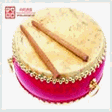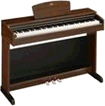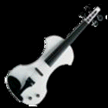
题目列表(包括答案和解析)
听下面5段对话。每段对话后有一个小题,从题中所给A、B、C三个选项中选出最佳答案。每段对话读两遍。
1.What is the man's favorite food?
A.Vegetables,
B.Fish.
C.Rice.
2.What color is the woman's coat?
A.Yellow.
B.Blue.
C.Black,
3.When did they talk to each other?
A.During the exam
B.Before the exam
C.After the exam
4.Where would Maria like other?
A.Hawaii
B.Acool place
C.A warm place
5.How often does the No, 9 bus come?
A.10 minutes.
B.20 minutes
C.30 minutes.
第二节
听下面几段对话或独白。每段对话或独白有几个小题,从题中所给的A、B、C三个选项中选出最佳答案。每段对话或独白读两遍。
听下面一段对话,回答第6至第7两个小题。
6.What happens in John's hometown?
A.There are a lot of trees on the hills.
B.There aren't many trees on the hills.
C.There are no trees on the hills.
7.How is the environment?
A.Not bad.
B.Worse and worse.
C.Better and better.
听下面一段独白,回答第8至第10三个小题。
8.Where does Jeff's uncle work?
A.In New York.
B.In Tibet.
C.In Hong Kong.
9.How will Jeff come to China?
A.By train
B.By plane
C.By subway.
10.Who will pay for the ticket?
A.Jeff's father.
B.Jeff's uncle.
C.Jeff himself.
听下面一段独白,回答第11至第12两个小题。
11.Who are allowed to take part in the 10, 000-meter race?
A.Students and teachers.
B.Only students.
C.Only teachers.
12.What time the race start?
A.At 1:30pm
B.At 2:00pm
C.At 2:30pm.
听面一段对话,回答第13至第15三个小题。
13.What did the woman want to do?
A.She wanted to buy a car.
B.She wanted the man to buy a car.
C.She wanted to sell the car.
14.What did the man think of the car?
A.The car is expensive.
B, The motor of the car doesn't sound nice.
C.The motor of the car sounds nice.
15.What did the woman do at last?
A, She decided to buy the car.
B.She agreed with the man.
C.She decided to wait for a while.
第三节 听下面一篇短文。请根据文章内容和图表提示,完成格林中学的平面方位图。并将表示地点的安母标号填在题号后的横线上。短文读两遍。
A.Lab Building
B.Main Bilding
C.Lecture Hall
D.Art Center
E.Garden

第一节 听对话选图画(共5小题,每小题1分,满分5分)
听下面5段对话,每段对话后有一个问题,听完后,从题中所给的A、B、C三幅图画中选出符合对话内容的图画。每段对话听一遍。
听第1段材料,回答第1小题。
1.Where did the man go last year?
A.
B.
C.![]()
听第2段材料,回答第2小题。
2.What does the mother ask her son not to do?
A.
B.
C.
听第3段材料,回答第3小题。
3.What does Johnson want to be now?
A.
B.
C.
听第4段材料,回答第4小题。
4.How does the boy usually go to school?
A.
B.
C.
听第5段材料,回答第5小题。
5.What is William doing?
A.
B.
C.
第二节:听对话或短文选答案(共10小题,每题1分,满分为10分)
听第6段材料,回答第6-8小题。
6.When can Mary finish her work?
A.3∶00.
B.4∶00.
C.4∶15.
7.How are they going to visit Mr.Smith?
A.By bike.
B.By taxi.
C.By bus.
8.Where are they meeting?
A.At the school gate.
B.At the bus stop.
C.in front of the cinema.
听第7段材料,回答第9-11小
9.Where did Rose go on her school trip?
A.To the Opera House.
B.To the Children Palace.
C.To the Palace Museum.
10.How did she go there?
A.By train.
B.By bus.
C.By plane.
11.She didn't buy anything because everything there was ________.
A.old
B.not nice.
C.expensive.
听第8段材料,回答第12-15小题。
12.What are they talking about?
A.Water sports.
B.Their interests.
C.The plan for the coming holiday.
13.Where does the woman want to go?
A.To the seaside.
B.To the mountains.
C.To a big city.
14.What is the man interested in?
A.All kinds of sports.
B.Water sports.
C.Climbing mountains.
15.The woman is interested in ________.
A.boating, swimming and fishing
B.Climbing mountains
C.Skating.
第三节:听对话或短文获取信息(共5小题,每题1分,满分为5分)

第一节(共10小题,每小题1分)
听下面10段短对话,每段对话后有一个小题,从题中A、B、C三个选项中选出最佳选项。听完每段对话后,你都有10秒钟的时间来回答有关小题和阅读下一小题。每段对话读两遍。
听第1至10段材料,回答第1至10题。
1.What's weather like today?
A.Rainy.
B.Cloudy.
C.Sunny.
2.Has Tom finished his homework?
A.Yes, he has.
B.No, he hasn't.
C.We don't know.
3.How will Sandy go to Beijing next week?
A.By plane.
B.By train.
C.She hasn't decided yet.
4.Who is the tallest boy of the three?
A.Martin.
B.Daniel.
C.Jack.
5.How long has the girl had the watch?
A.Since two years.
B.For two years.
C.Two years ago.
6.Why did the man get lost?
A.Because he is too old to find the way.
B.Because he looked worried.
C.Because great changes have taken place there.
7.What time will Lucy leave for the cinema?
A.At 8∶00.
B.7∶30.
C.8∶30.
8.Where is the man's wife?
A.Outside the office.
B.Inside the office.
C.At home.
9.How often did Annie go to KFC before?
A.Every day.
B.Twice a week.
C.Never.
10.Which floor does Betty live on?
A.On the eighth floor.
B.On the fifth floor.
C.On the third floor.
第二节(共10小题,每小题1分)
听下面3段长对话和短文,每段对话和短文后有几个小题,从题中A、B、C三个选项中选出最佳选项。听每段对话和短文前,你将有时间阅读各个小题,每小题6秒钟,听完后,每小题将给出6秒钟的作答时间。每段对话和短文读两遍。
听第11段材料,回答第11至12题。
11.Did Susan have a nice weekend?
A.Yes, she did.
B.No, she didn't.
C.It's hard to say.
12.Which one of the following is NOT right?
A.Susan's son likes playing computer and never takes exercise.
B.Susan thinks his son must change his lifestyle.
C.Susan's son is still in hospital now.
听第12段材料,回答第13至15小题。
13.When is the Earth Hour every year?
A.On March the first.
B.On March the thirtieth.
C.On March the thirty-first.
14.How long is the Earth Hour?
A.An hour.
B.Two hours.
C.More than one hour.
15.What will the man and the woman do during the Earth Hour?
A.Watch TV.
B.Play the computer games.
C.Take a walk together.
听第13段材料,回答第16至20题。
16.How many umbrellas did Mrs White find behind the door?
A.Four.
B.Five.
C.Six.
17.Where did Mrs White sit on the bus?
A.Beside the old lady.
B.Between the old lady and the umbrella.
C.On the floor.
18.Why was the old lady so angry?
A.Because there are too many people on the bus.
B.Because Mrs White had more umbrellas than her.
C.Because Mrs White took her umbrella.
19.How long did it take the shopkeeper to repair Mrs White's umbrellas?
A.Two days.
B.Three days.
C.We don't know.
20.What do the old woman think of Mrs White?
A.She is an umbrella worker.
B.She is an umbrella shopkeeper.
C.She is a thief(小偷).
第一节 根据所听内容,选择相应的图画。听每段材料前,你将有时间阅读各个小题,每小题5秒钟;听完后,各小题将给出5秒钟的作答时间。(共4个小题,每小题1分)
1.
A.
B.
C.
2.
A.
B.
C.
3.
A.
B.
C.
4.
A.
B.
C.
第二节 听对话,然后选择正确答案。听每段对话前,你将有时间阅读各个小题,每小题5秒钟;听完后,各小题将给出5秒钟的作答时间。(共8个小题,每小题1分)
听下面4段对话,听完每段对话后回答一个小题。
5.When did John watch the football match?
A.Yesterday morning.
B.Yesterday afternoon.
C.Last night.
6.Where will the two speakers go?
A.To a bookshop.
B.To a hospital.
C.To a school.
7.How was the weather yesterday?
A.Sunny.
B.Rainy.
C.Cloudy.
8.Why can't Jack go to the movie?
A.Because he has to do much housework.
B.Because he has to visit a woman.
C.Because he has to wait for his best friend.
听下面一段对话,回答9-10小题。
9.What do the two speakers talk about?
A.Tea.
B.Coffee.
C.Coke.
10.Who invented tea?
A.Julie.
B.The emperor Shen Nong.
C.Steve.
听下面一段对话,回答11-12小题。
11.Where did Tina leave her backpack?
A.At home.
B.At school.
C.On the bus.
12.How did Tina feel this morning?
A.Bad.
B.Good.
C.Lucky.
第三节 听短文,然后根据短文内容判断下列句子的正误(T/F)。(共4个小题,每小题1分)
13.Peter has a lovely dog.
14.Peter has no time to look after Kitty now.
15.Peter is studying for a math competition.
16.The competition will be held next month.
第四节 根据你所听到的内容,填写下面的表格,每空不超过3个单词。(共4个小题,每小题1分)
My new friend,Jane
| A.外婆家后园的花红柳绿、虫鸣燕舞给儿时的“我”留下深深的印象,为“我”成年后的养花之渴望做了铺垫。 |
| B.作者认为,自己在很长一个人生阶段只长年岁不长心眼,是因为自己连养花种草都做不好。 |
| C.第⑥段叙述黄岳渊先生辞官种花之事,多用四字句和文言词语,既使文章语言凝练典雅,也可借此暗示黄岳渊先生的高雅。 |
| D.文章先从自己种花草的经历谈起,再对照黄岳渊种花草的故事,顿悟出人的一生只能做一件事的道理,由事入理,说理既深刻又形象。 |
湖北省互联网违法和不良信息举报平台 | 网上有害信息举报专区 | 电信诈骗举报专区 | 涉历史虚无主义有害信息举报专区 | 涉企侵权举报专区
违法和不良信息举报电话:027-86699610 举报邮箱:58377363@163.com